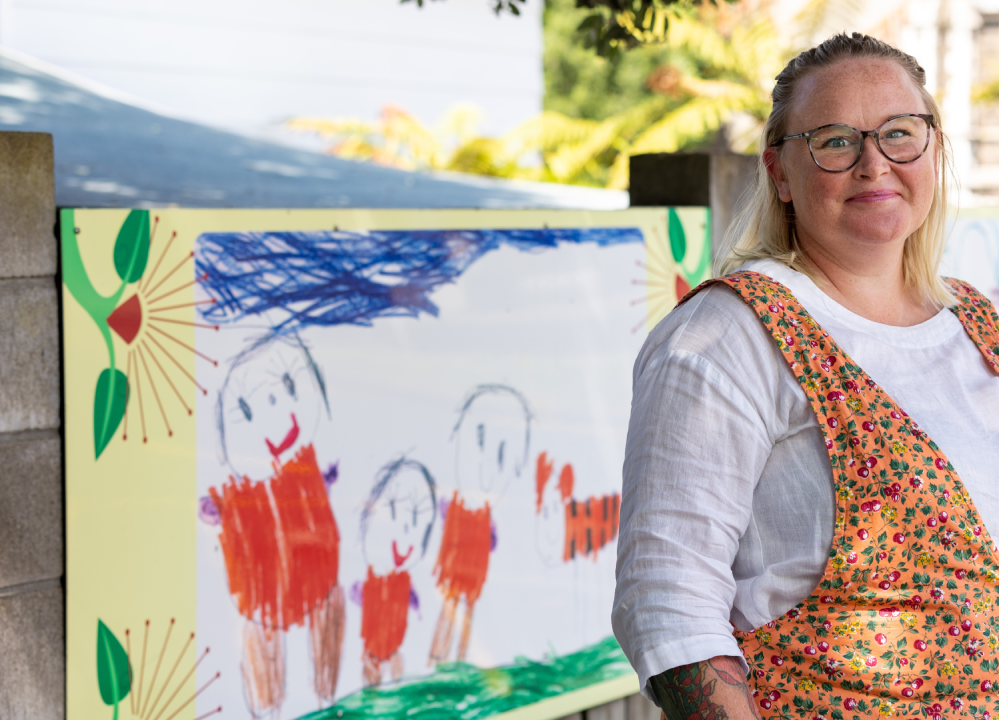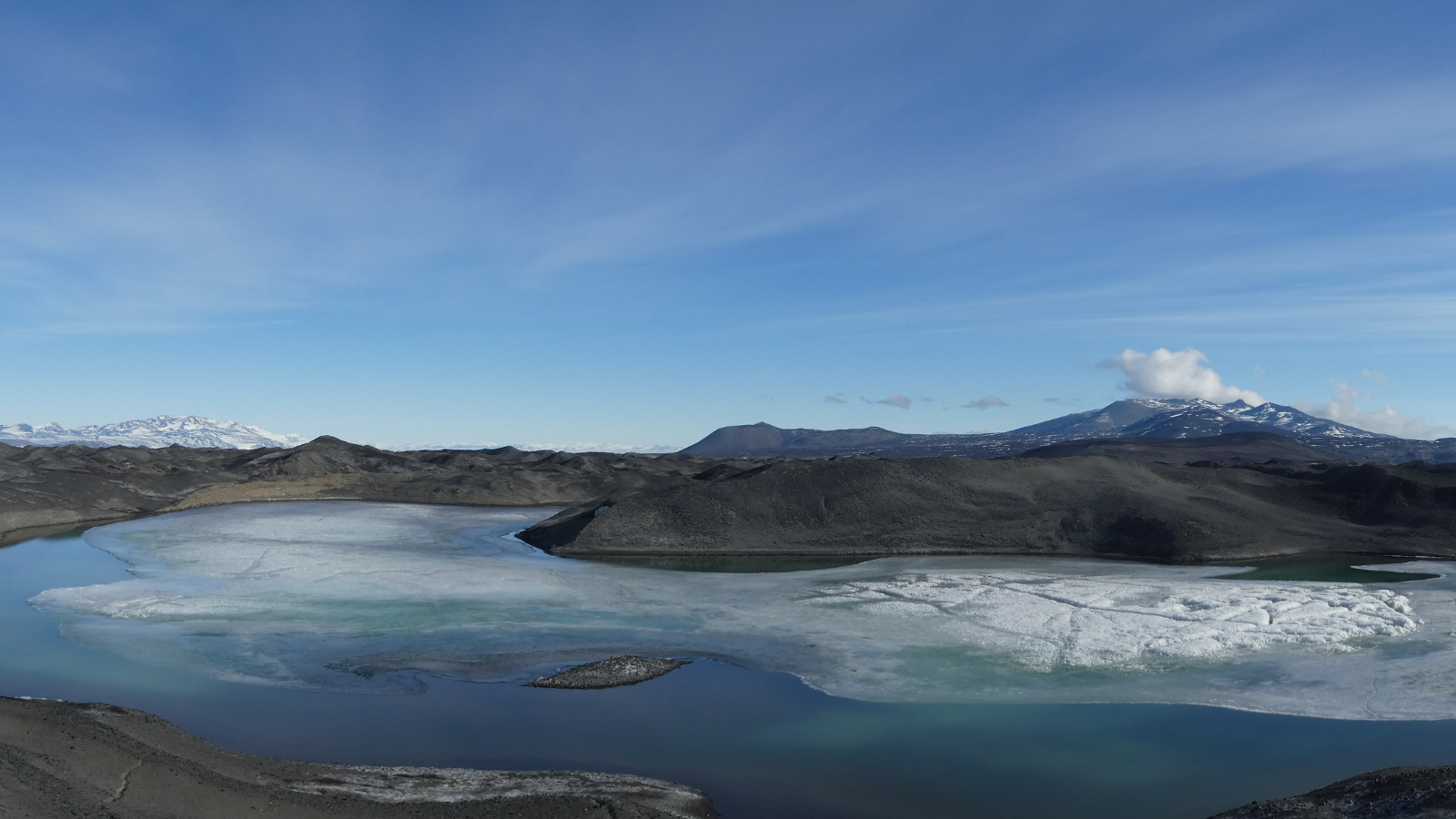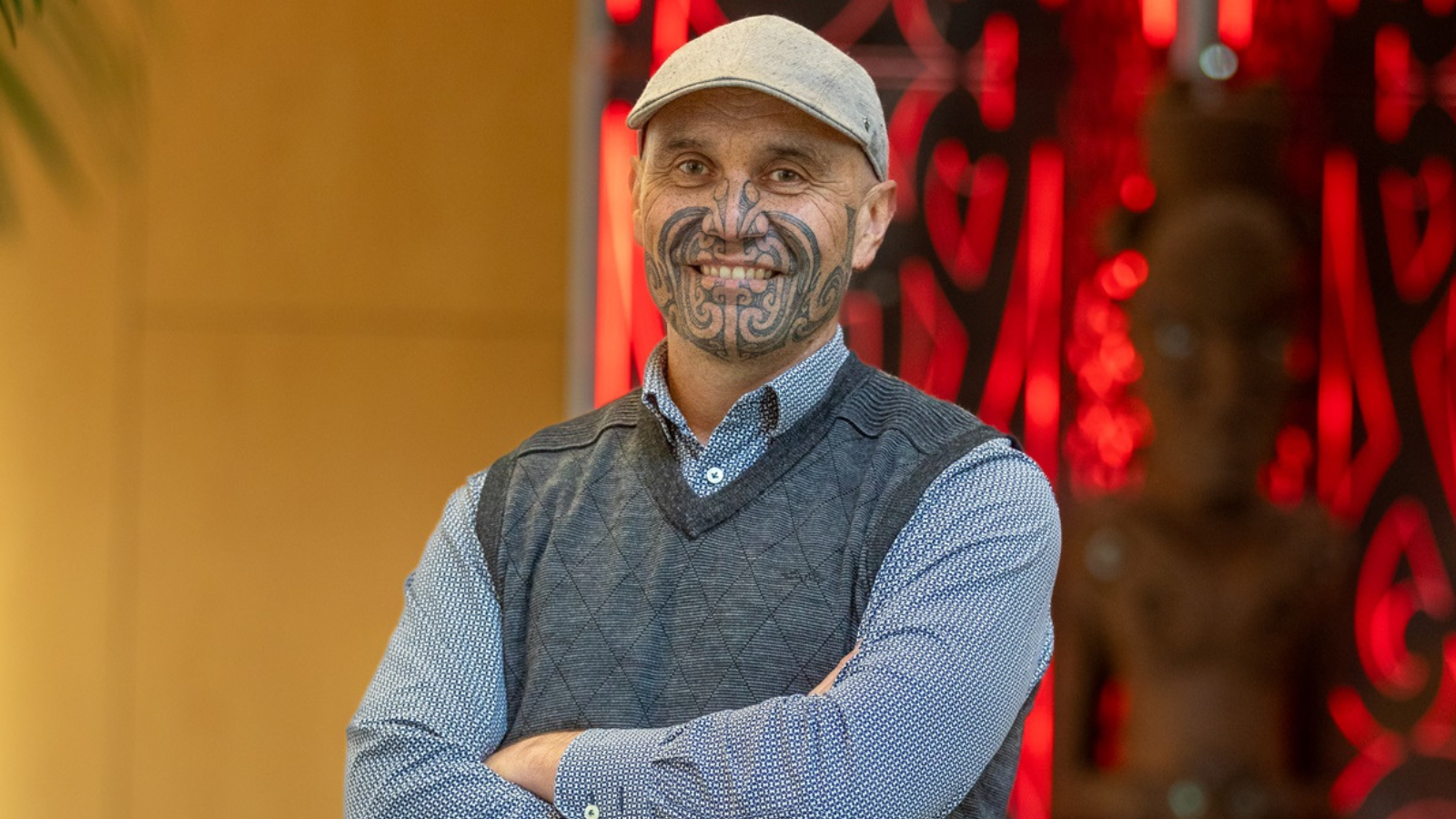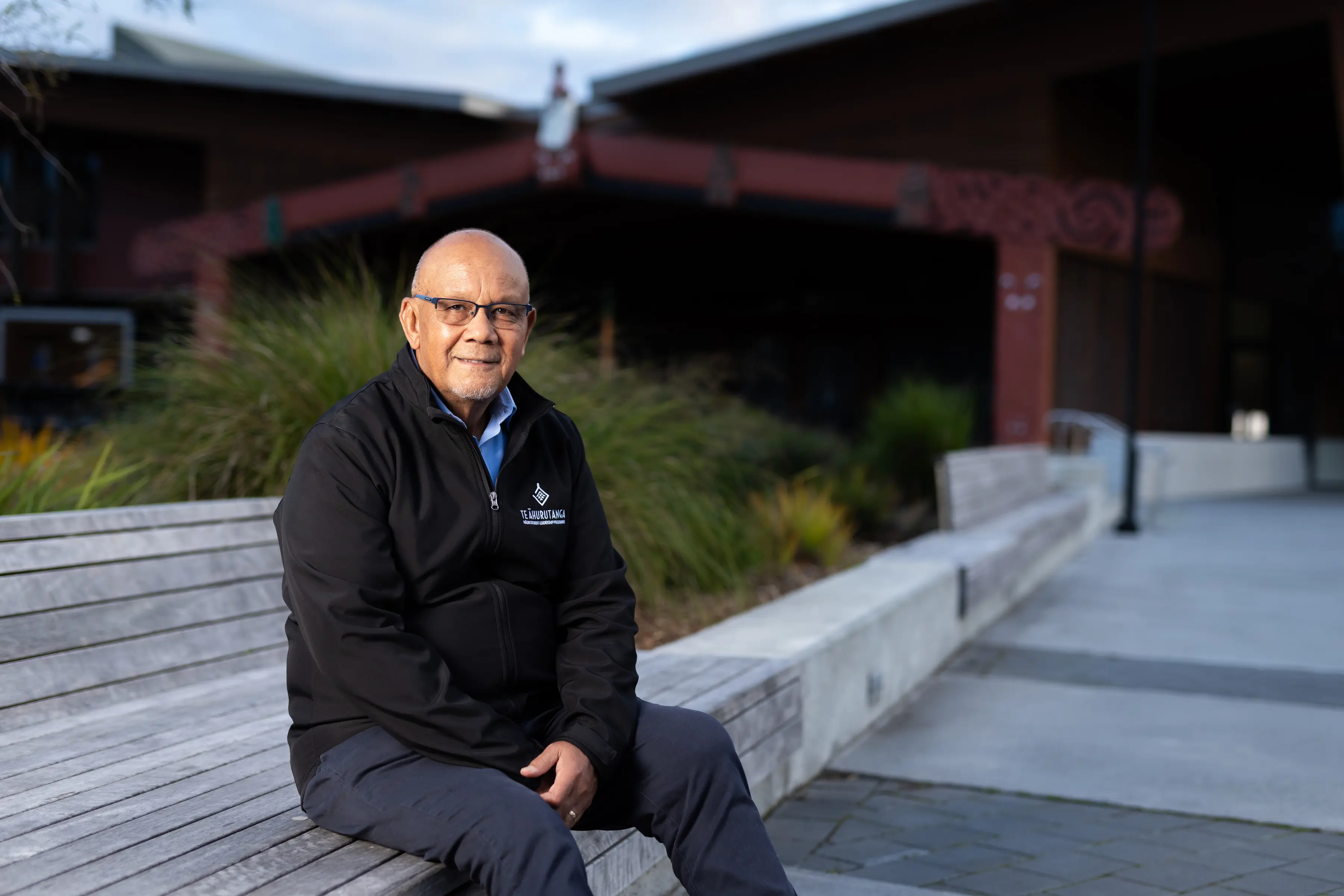Yesterday three teenage skateboarders stood on the podium at the Tokyo 2020 Olympics to receive their medals.
Nishiya Moiji, 13, of Japan won gold, Rayssa Leal, 13, of Brazil won silver, and Nakayama Funa, 16, of Japan won bronze in the first ever Olympic women’s street skateboarding competition.
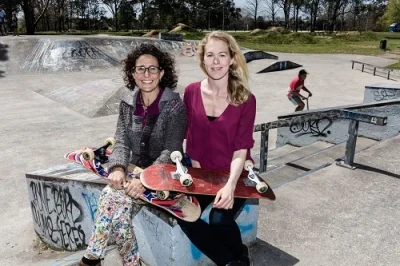
Professor Belinda Wheaton and Professor Holly Thorpe from Te Huataki Waiora School of Health at Waikato University.
The moment will likely mark a tipping point in the sport of skateboarding, boosting the growth in young, female participation, but also legitimise what has long been a grassroot, counter-culture movement, say the authors of a new book, Action Sports and the Olympics: Past, Present and Future.
The book, written by Professor Belinda Wheaton and Professor Holly Thorpe from Te Huataki Waiora - School of Health at the University of Waikato, is based on a decade of research on the evolution of the Olympic Movement, from the inclusion of the first action sports to today.
The book takes an in-depth look at the International Olympic Committee (IOC) and changes that have been occurring over time, including the introduction this year of four new action sports: skateboarding, surfing, sport climbing and BMX freestyle.
It also includes a section on the rise of the teen girl skateboarder phenomenon and a chapter on gender.
Professor Wheaton and Thorpe are excited about the opportunities for gender equality and representation in the Tokyo 2020 Olympic Games.
“There has been a huge rise, quite fast, of pre-teen girls in the sport [of skateboarding],” says Professor Wheaton. “If skateboarding gets good air time, it will surprise a lot of people because you have young girls doing phenomenal things and that could have a really big impact on a new generation of young women and girls.”
Professor Thorpe says that the IOC is working hard to reach gender equity, including putting quotas on sports, which has created new opportunities for women and girls at the Tokyo Olympics as athletes and leaders.
“We are going to see some amazing women in these sports in the Olympics and we hope that will have a ripple effect, in terms of who sees themselves in these sports going forward and hopefully support for women in these sports.”
NEW ACTION SPORTS INTRODUCED
Skateboarding is one of the new action sports introduced by the IOC at Tokyo in the hopes of breaking down elitism barriers and attracting a younger, more urban audience.
“This is in response to growing criticisms that the Olympics are increasingly irrelevant to everyday people,” says Professor Thorpe.
The question of whether it will be enough to get young people watching the Olympics is still up for debate.
“Young people are not going to sit for four hours and watch the Olympics on TV,” says Professor Thorpe. “Young people will probably consume the Olympics via very short videos on their favourite athletes’ social media accounts.”
Professor Wheaton says its inclusion in the Tokyo Olympics will help “legitimize” skateboarding, which has long been considered a grassroots, “deviant, grungy boys thing”. Now in the Olympic spotlight skateboarding is likely to evolve into a sport that schools and clubs will embrace, and parents will encourage their children to pursue.
LACK OF FUNDING AND FACILITIES
However, in New Zealand, lack of facilities, funding and sponsorship remain a challenge for action sports - something that Professor Thorpe and Wheaton address in their book.
Along with a survey and media analysis, the duo interviewed more than 50 professional athletes, recreational participants, presidents of international federations, company owners, IOC staff, sports industry leaders, media and event organisers. They also held a number of stakeholder meetings with New Zealand sporting bodies, which informed their research findings.
“For those [action sports participants] who want to take it to a professional level, at the moment we don’t have that pathway in this country,” says Professor Wheaton. “What comes through, time and time again, is the frustration, especially from sports like skateboarding, surfing and BMX, that they are not being funded - which in New Zealand is pretty woeful compared to some places around the world.”
One chapter of their book looks at the different investment in action sports by country, and compares New Zealand with Australia, the USA and China.
“New Zealand has invested very little in these sports, and we are going to see that lack of investment in Tokyo and probably Paris (in the 2024 Summer Olympic Games),” says Professor Thorpe.
“We see Australia has a big hub of action sports for surfing, skateboarding, climbing and BMX freestyling, and they are really putting a lot of money and resourcing and infrastructure around these sports, and we see the USA doing something similar. In China, they are taking four and five year old kids out of school and putting them in action sport training camps, because they see the potential for an Olympic gold medal,” says Professor Thorpe, who says the lack of funds and facilities is driving young athletes overseas.
“These sports have historically been from the grassroots up, we are now seeing top-down models because of gold medal lust. By becoming Olympic sports, we are seeing the structures of these sports changing, and it could have quite interesting implications for who participates in these sports, and why and how they participate.”
INSTITUTIONS SLOWLY CHANGING
The IOC was compared to “a freight ship”, turning slowly, whereas the new action sports were considered much faster and more flexible, “like jet skis, whizzing around” by interviewees in their book, says Professor Wheaton.
However, the issue is bigger than just action sports and the Olympic Games - large industry bodies in New Zealand also face challenges and need to change.
“We see in New Zealand sports organisations trying to attract young kids to sport, to keep them there and to modernise,” says Professor Thorpe. “The infrastructure of traditional sports is creaking with social changes, and they need to respond.
“The IOC is a mega institution trying to change it’s structures to respond, but we see Sport New Zealand and many of our sporting organisations also recognising our structures don’t work anymore; we have to be more flexible, and respond more quickly, we need people who get it, on the ground. Not the 60 year old white men sitting around a table making decisions for everyone else, because that doesn’t work anymore,” says Professor Thorpe.
The Tokyo Olympics promises urban appeal and democratisation, “but in reality the Olympic Games are still dominated by particular groups of participants and countries”’ suggests Professor Wheaton.
Three Waikato University PhD students also contributed to the book: Dr Damien Puddle (on the development of Parkour in New Zealand), John MacFarlene (on the development of Skateboard New Zealand, both at organisational and grassroots level) and Dr Neftalie Williams (on the development of skateboarding in the USA and diversity).
KAUPAPA KŌRERO
Professor Thorpe and Professor Wheaton are among a panel of speakers at the Kaupapa Kōrero - Little Talks, Big Topics series on Tuesday 27 July night at the Gallagher Academy of Performing Arts on campus.
The theme is Faster, Higher, Stronger ... Riskier? Power, performance and patriotism at the COVID Olympics.
Other speakers include:
- Geoff Barry from Rowing New Zealand
- Dr Damien Puddle from Sport Waikato and Parkour NZ - Tauhōkai Aotearoa
- Dr Rob Townsend from Waikato University’s Te Huataki Waiora School of Health
- Ally Wollaston from the New Zealand Women’s Endurance Track Cycling Team (and a current Law student at Waikato)
- Mihi Nemani, world champion bodyboarder and weightlifter, current PhD candidate at the University of Waikato and principal lecturer in Sport at Manukau Institute of Technology
The event starts at 5.45pm and is free and open to the public. To register or for more information, visit the event page here. Check out the video below to get a taste of what the event will cover.
